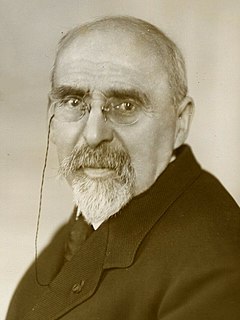A Quote by Mao Zedong
The revolutionary war is a war of the masses; it can be waged only by mobilizing the masses and relying on them.
Quote Topics
Related Quotes
It seems to me an utterly futile task to prescribe rules and limitations for the conduct of war. War is not a game; hence one cannot wage war by rules as one would in playing games. Our fight must be against war itself. The masses of people can most effectively fight the institution of war by establishing an organization for the absolute refusal of military service.
WE MADE A MONSTER OF HITLER, A DEVIL. THAT IS WHY (THEREFORE) WE COULD NOT AFTER THE WAR SAY OTHERWISE. WE HAD PERSONALLY MOBILISED THE MASSES NEVERTHELESS AGAINST THE DEVIL. THUS WE WERE FORCED AFTER THE WAR, TO PLAY ALONG WITH THIS DEVILS' SCENARIO. WE COULD NOT POSSIBLY HAVE MADE OUR PEOPLE CLEAR (TO THEM) THAT THE WAR WAS ONLY AN ECONOMIC PREVENTATIVE MEASURE!
The purpose of propaganda is not to provide interesting distraction for blasé young gentlemen, but to convince... the masses. But the masses are slow moving, and they always require a certain time before they are ready even to notice a thing, and only after the simplest ideas are repeated thousands of times will the masses finally remember them.
It is good that since the outbreak of the war with Japan, more and more revolutionary writers have been coming to Yan'an... But it does not necessarily follow that... they have integrated themselves completely with the masses here. The two must be completely integrated if we are to push ahead with our revolutionary work.
You have only to play at Little Wars three or four times to realize just what a blundering thing Great War must be. Great War is at present, I am convinced, not only the most expensive game in the universe, but it is a game out of all proportion. Not only are the masses of men and material and suffering and inconvenience too monstrously big for reason, but-the available heads we have for it, are too small. That, I think, is the most pacific realization conceivable, and Little War brings you to it as nothing else but Great War can do.
Often war is waged only in order to show valor; thus an inner dignity is ascribed to war itself, and even some philosophers have praised it as an ennoblement of humanity, forgetting the pronouncement of the Greek who said, 'War is an evil in as much as it produces more wicked men than it takes away.'
For a long time, it was believed that war was waged by armies which could not be identified with the nation itself. Professional soldiers took upon themselves the job of defending national interests, and it was understood that the war affected only them; the country itself went on living and working.





































